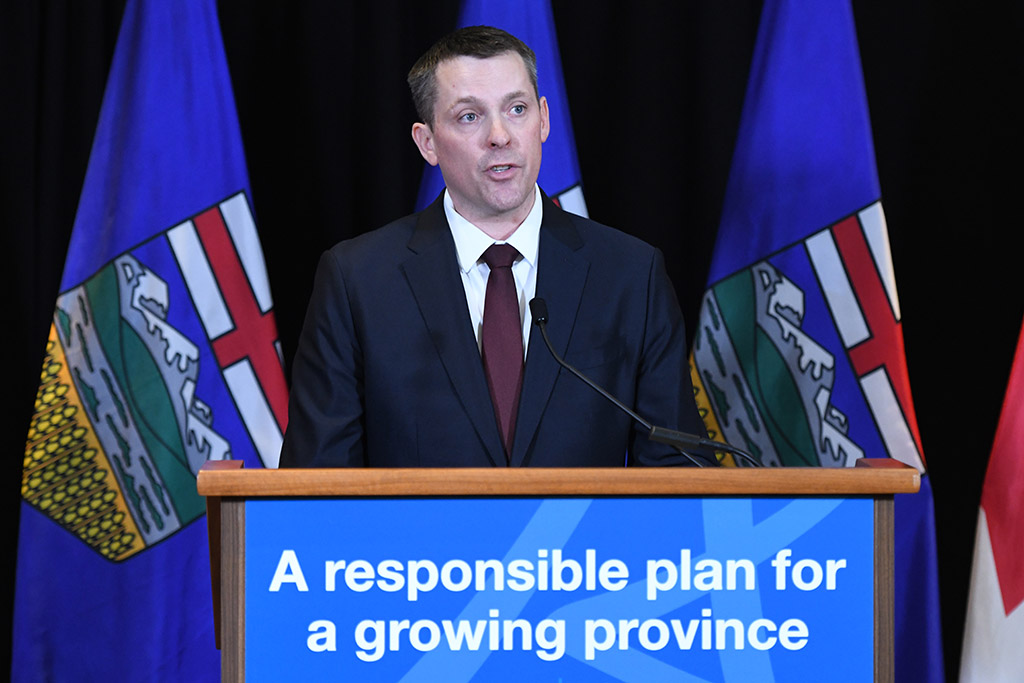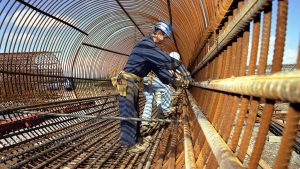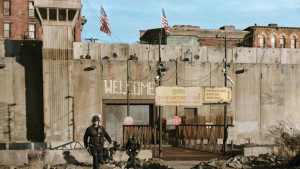Some Alberta construction stakeholders are reacting positively to the announced Feb. 29, but others have a dimmer view.
president Bill Black said the budget recognized the need to deal with an ongoing labour shortage, something his organization and others have lobbied for.
“The $5,000 incentive added to the ‘Alberta is Calling’ campaign, funding for collegiate schools, funding for the Northern Alberta Institute of Technology’s technical training centre, these are all good to see because the government is recognizing that they have a role to play in our long-term workforce challenge,” Black said.
He added housing as an issue that is “inextricably linked.”
“We need people to move here, they need homes, we need people to move here to build homes,” Black said.
Calgary Construction Association director of public affairs and external relations Fano Cavar added the budget showed a provincial commitment to rail projects.
“The budget includes a $2 million study to assess the feasibility of a rail link between Calgary’s downtown and the airport which is important because it’s happening in parallel to expansion of the Blue Line, pushing $43 million to build a new station at 88 St. NE takes us even one stop further,” Cavar said.
‘Not a historic Alberta budget on its own’
president Mike Martens contrasted the Alberta budget with British Columbia’s, which was also recently unveiled.
“This is not a historic Alberta budget on its own, but where it stands out is how it contrasts with the rest of the country and specifically B.C.,” Martens said. “We’re going to have small surpluses in Alberta beginning in 2024-25, and compare that to $20 billion in combined operating deficits in B.C. over the same period.
“Program spending rises but is less extensive than in B.C., so we applaud that fiscal restraint. As much as we would like to see more consistent spending on infrastructure, I think that’ll be in program spending. We want to see multiple-year spending on infrastructure, but in general we take a higher-level approach and given the Canadian context of a very much struggling economy, Alberta stands out,” he added.
The (PCA) praised the Alberta budget for a focus on “fiscal responsibility and investments in skills training and infrastructure to support the province’s growing population.”
“It’s refreshing to see this government’s commitment to fiscal balance. This is a responsible budget that at the same time makes major investments in health care, education, new apprenticeship spaces and infrastructure to keep Alberta’s economy strong, and growing,” PCA president and CEO Paul de Jong said in a release.
Some infrastructure dollars missing
chair Jason Portas also voiced support for the budget, but pointed to some infrastructure as deserving of further funding.
“We are encouraged by the budget, especially in the continuing investment in buildings, roads and people that are the backbone of our growing province,” Portas said in a release.
“We appreciate the new funding for the Red Deer Hospital. However, we are disappointed that the Edmonton South hospital is not receiving additional funding at this time and hope that the delay will be brief.”
Portas also praised further investments in roads and light rail transit such as Calgary’s Blue Line and added funding for apprenticeships and post-secondary trades education.
In a release the called the budget a “missed opportunity to plan for a clean economy.”
“This was the first Alberta budget since the release of the province’s Emissions Reduction and Energy Development Plan in April 2023, and so represented the best opportunity to make progress by investing in reducing emissions and building the clean economy that Albertans will need to be ready for future economic prosperity. Regrettably, the government’s budget missed this opportunity almost completely,” Pembina Institute executive director Simon Dyer said.
Dyer said while the budget did allocate some of Technology Innovation and Emissions Reduction (TIER) carbon emissions trading revenue to emissions reduction rather than reducing the province’s debt, “we believe that 100 per cent of TIER revenue must be directed toward emissions reductions projects that help the province diversify its economy to become less reliant on non-renewable resource revenue. That did not happen.”
also expressed discouragement with the amount of funding allocated to Alberta’s $30-billion infrastructure deficit.
“The $722 million in funding allocated to the Local Government Fiscal Framework (LGFF) in the provincial government’s 2024-25 falls far short of what is needed to address current infrastructure needs,” an ABMuni release said. “By not increasing LGFF capital funding and increasing provincial education property taxes by $230 million (an increase of 9.1 per cent), the provincial government continues double-downloading the tax burden onto municipal governments and property owners.”











Recent Comments
comments for this post are closed